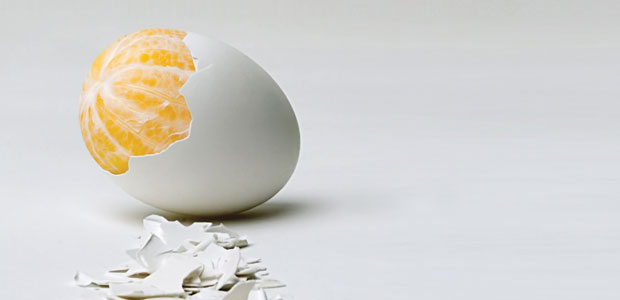Advertisement
The Vitamin K Connection
For a strong heart & bones

Even if you’re one of the most health-conscious Canadians, you probably haven’t thought much about vitamin K. Until recently, scientific opinion around this nutrient has held that deficiency is uncommon and obvious.
A groundbreaking new study has revealed, however, that many apparently healthy people are vitamin K deficient, thereby increasing their risk of osteoporosis and atherosclerosis.
Although it is also intricately involved in bone formation, vitamin K was named for its essential role in blood clotting: the K comes from the German word, koagulation. For decades it was thought that a deficiency of this nutrient revealed itself in some kind of excessive bleeding. Turns out, we’ve been taking vitamin K for granted.
The Calcium Paradox
Despite a dramatic increase in sales of calcium supplements and calcium-fortified foods of every imaginable kind, rates of osteoporosis remain unchanged. At the same time, atherosclerotic plaques that are made up of calcium (among other things) continue to plague Western populations. This is the calcium paradox: concurrent arterial calcification and bone loss. So, what makes calcium move from arteries back into bones? Vitamin K.
Vitamin K is actually a group of fat-soluble vitamins. Vitamin K1, also known as phylloquinone, is synthesized by plants. Food sources include any green leafy vegetable and a variety of fruits. Although important for good health, research shows K1 is not the major player in the calcium paradox.
That role belongs to vitamin K2, or menaquinone. It is produced by healthy intestinal bacteria and is also found in the fermented soybean foods miso and natto, as well as in egg yolks, liver, and dairy products. Unfortunately, in order to have any appreciable amount of vitamin K2, these latter foods need to be from animals fed primarily on grass, not grain. This is rare nowadays–a possible explanation for the widespread deficiency–but worth searching for. Alternatively, you can be sure to get the vitamin K2 you need by taking advantage of the fact it has finally achieved nonprescription status in Canada. Choose a vitamin K2 supplement sourced from natto, ideally combined with vitamin D for optimum bone building support.
Dosing Dilemma
Although the recommended daily intake (RDI) for adult women is 65 mcg, most clinical trials using vitamin K2 to improve bone density and reduce arterial calcification used doses of 45 mg per day–almost 700 times the RDI. Until an optimal daily intake is established, I believe a 120 mcg daily dose is a good place to start.





